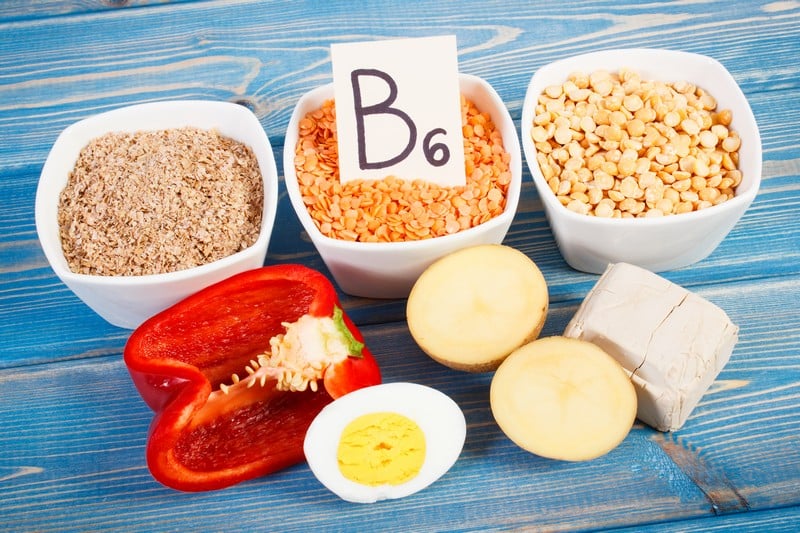Vitamin B6

Vitamin B6, also known as pyridoxine, is vital in maintaining a healthy brain, neurological system, and immune system. It is a water-soluble vitamin that may be found in various foods, added to others, and sold as a supplement.
Hemoglobin in RBCs transports oxygen to body cells. To produce hemoglobin, vitamin B6 is essential and boosts hemoglobin’s oxygen-carrying capacity. Red blood cell formation cannot occur without this vitamin. A lack of Vitamin B6 can increase the likelihood of anemia; hence, supplements can help treat iron deficiency.
According to many studies, vitamin B6 deficiency has been associated with anemia, particularly in women of reproductive age and pregnant women. Symptoms of anemia in 56 pregnant women who did not respond to iron therapy were reduced when they took vitamin B6 supplements daily, based on recent research.
Chicken, fish, potatoes, chickpeas, bananas, and fortified cereals are all excellent sources of Pyridoxine. Iron-deficient patients may also take vitamin B6 in supplement form, usually in the form of a liquid, pill, or tablet. Adults under 50 should consume 1.3 milligrams of vitamin B6 daily and increase their intake to 1.7 to 1.5 mg, after they hit age 50.










